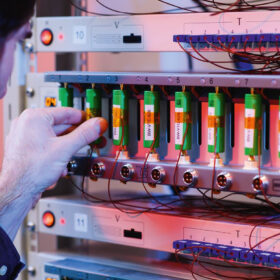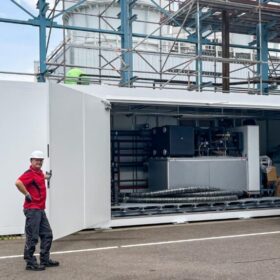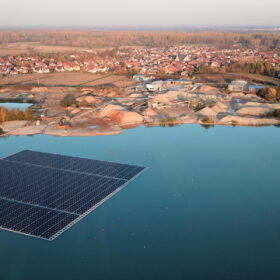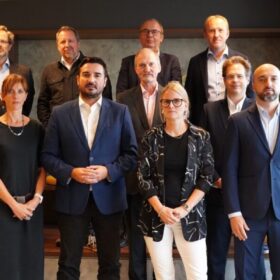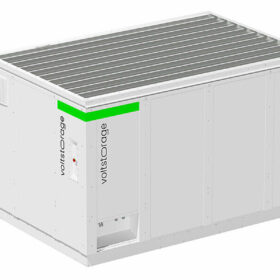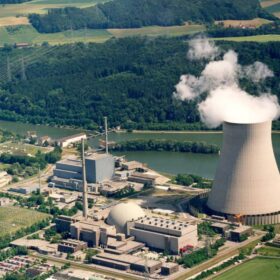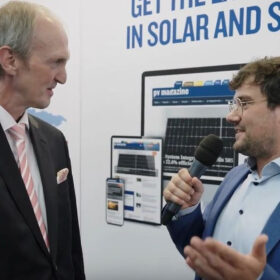Weekend Read: Insuring against battery bother
It is extremely unlikely that a battery storage system will smoke, burn, or explode, despite a spate of recent reports. But what happens if something does go wrong? Do insurance companies pay out? Do premiums go up? How do insurers assess the issue?
Fraunhofer IEG opens testing site for MW-sized heat pumps
The Fraunhofer Institute for Energy Infrastructures and Geothermal Energy (Fraunhofer IEG) says it plans to open two new test benches for large heat pumps. Manufacturers, developers and project planners will have access to the test benches, in order to bring new systems to market maturity.
Fraunhofer ISE studying floating PV’s impact on oxygen levels, temperature
Fraunhofer Institute for Solar Energy Systems (Fraunhofer ISE) is investigating the impact of floating PV systems on oxygen levels and water temperature. The study is focused on determining whether floating PV systems, deployed by Erdgas Südwest in southern Germany, have altered the lake’s thermal stratification and oxygen content.
Aleo Solar presents 400 W in-roof PV modules
Aleo Solar has introduced 400 W in-roof PV modules, which can also function as solar tiles. The German manufacturer offers this new product in four power classes, ranging from 385 W to 400 W.
SolarPower Europe to support European PV without trade barriers
SolarPower Europe’s board members have issued a joint statement calling for three measures to safeguard the European solar industry, as they claim that tariffs and trade barriers are not viable solutions.
Sliding solar module prices squeezing European manufacturers
Plummeting module prices are weighing on European manufacturers, but the impact on wholesalers is differently, as warehouse conditions are showing signs of improvement.
VoltStorage unveils vanadium redox flow battery for commercial use
Germany’s VoltStorage says its containerized 50 kWh vanadium redox flow battery solution can be scaled up to 500 kWh.
LEAG plans 950 MW power-to-gas plant at lignite mine
LEAG, Germany’s second largest energy supplier, is planning a power-to-X project to produce hydrogen, store waste heat, generate electricity, and supply buses with hydrogen. The plant will also have a thermal solid-state storage facility with a capacity of 1,000 MWh.
Germany’s power mix boasts more renewables, lower spot market prices – despite nuclear exit
Germany’s shutdown of nuclear power plants in April did not result in a ramp-up of lignite-fired power plants, despite concerns. Instead, there has been a significant increase in the share of renewables in the electricity mix, and the proportion of coal-generated electricity has fallen by more than 20%.
Solar Leaders at Intersolar 2023: Germany is ‘the fastest growing market’
Jörg Ebel, the president of German solar association BSW, spoke with pv magazine at Intersolar 2023 about the ongoing German solar renaissance, as the market has steadily recovered since its collapse in 2012. He sees growth across all segments, with untapped “opportunities” in the C&I market. However, he noted that Brussels needs to build trust, set a unified EU industry policy to support factory investments, and create the conditions for Germany to revitalize its upstream PV business.

